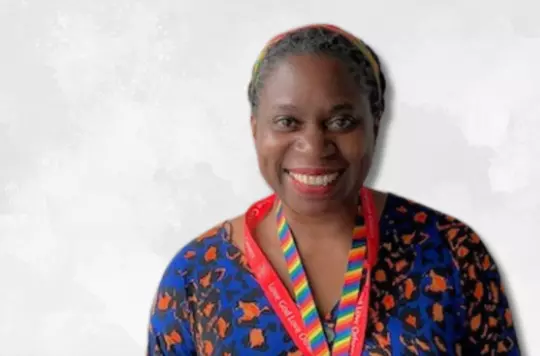25 May 2024
A duty of dignity
Major Peter Mylechreest
Major Peter Mylechreest considers the value of respect.
Key text
Everyone appreciates respect. We respect those who ‘practise what they preach’ but lose respect for those who do not live out their claims. Let’s consider the example of Jesus showing respect to the woman caught in adultery found in our study passage.
Against cultural expectations, Jesus treats the woman caught in adultery with sensitive compassion and respect. He literally saves her life in the process.
Respecting people as having unique value, however, should not be confused with agreeing with everything they say or do. Jesus tells the woman not to continue in her lifestyle. Hopefully, she is transformed by being shown God’s love.
Elsewhere, Jesus shows his willingness to challenge those who disrespect God. His words and actions clearing out those in the Temple who – under the respectable high priest – had turned his Father’s house into a marketplace (see John 2:13–17) show he is prepared to challenge those who exploit people coming to offer sacrifice and worship.
When a person is described as respectable, it normally refers to their outward conduct conforming to an accepted way of life. This may not command respect from everyone and may merely maintain a flawed status quo. And being socially respectable does not always equate to being respected.
Pause and reflect
- How do we show respect to each person who comes to our corps, either to worship or to seek help?
To receive respect, we need to respect people and their right to hold an opinion. We may present our case or argue over the solution to a problem, but respect doesn’t make uninformed judgements about another person’s integrity. It is somewhat ironic that the phrase ‘with all due respect’ is sometimes used before challenging and demolishing another’s opinion. In fact, little or no respect is actually being shown.
We need to heed Peters words: ‘In your hearts revere Christ as Lord. Always be prepared to give an answer to everyone who asks you to give the reason for the hope that you have. But do this with gentleness and respect’ (1 Peter 3:15).
Pause and reflect
- When have you lost respect for someone?
- Why did this happen?
Nowadays, the respect that was automatically given to politicians, teachers, police officers and others in authority, seems to have to be earned. The sceptical phrase ‘Jack is as good as his master’, irreverently encapsulates this shift towards a more egalitarian society that doesn’t show deference to former traditions.
In New Testament times, the hierarchical order – rulers, landlords, stewards, servants then slaves – was the norm. Jesus’ response to the woman challenged these societal standards.
Paul echoes this in his letter to Christians in Galatia: ‘So in Christ Jesus you are all children of God through faith… There is neither Jew nor Gentile, neither slave nor free, nor is there male and female, for you are all one in Christ Jesus’ (Galatians 3:26–28). Just like Jesus’ actions, Paul’s statement here must have been astounding to his readers. His words were written at a time when the Jewish nation considered themselves God’s chosen people, while Gentiles – non-Jewish people – were considered irrelevant to God’s plans. Women were considered inferior with few rights compared to men. Consider, also, that the Roman Empire was dependent on between 5 and 10 million slaves.
Peter takes this idea further: ‘Show proper respect to everyone, love the family of believers, fear God, honour the emperor’ (1 Peter 2:17). In The Message this last request is paraphrased to ‘Respect the government.’ The New Life Version renders it: ‘Respect the head leader of the country.’
This presents a dilemma for millions of believers who live under ungodly and unjust regimes. Should they speak out, demonstrate and rebel? Or remain silent in the face of wrongdoing, corruption and evil?
Catholic bishop Enrique Angelelli courageously spoke out about the corruption of the Argentine government and was killed as a result. Numerous lesser-known figures have spoken out against tyrannical leaders and have been imprisoned or martyred. Speaking truth to power, even respectfully, might be costly.
Pause and reflect
- What might move you to respectfully or courageously speak out about injustice?
The Salvation Army in the UK and Ireland Territory has an official statement that says this about the value of respect: ‘We will welcome each person with the dignity of those created in the image of God, valuing their diversity, seeking to serve each other’s flourishing and transformation within God’s love.’ This is closely linked to the territory’s other values. Integrity and boldness can help earn respect, and we may well need mutual accountability to maintain respect.
There will perhaps always be inequality in this world because people have different backgrounds, skillsets, approaches to life and opportunities. Consequently, some people are more privileged than others. Indeed, today, it seems those with a lot of money are given – or demand – more respect, regardless of their personal morality.
But for all to flourish, those with greater responsibilities are required to respectfully listen to those for whom they have responsibility. All followers of Jesus have a duty to show respect to others, regardless of their backgrounds, ideas or experiences.
Pause and reflect
- Where have you experienced a lack of respect?
- How have you experienced a lack of respect?
- Why have you experienced a lack of respect?
We are all one in Christ. All of us, without exception, are to be valued and treated with dignity, because we are all created in the image of God. This is a challenge for us all.
Bible study by

Major Peter Mylechreest
Retired Officer
Discover more

Ahead of National Biscuit Day, Major Julian Watchorn celebrates the diversity of God’s biscuit tin.

Equality and Diversity Manager Jennifer Laurent-Smart (THQ) talks about creating an environment where everyone can flourish.

Bethany Gibson (Regent Hall) and Major David Cavanagh (THQ) discuss living with difference as members of the Moral and Social Issues Council.

